What May’s car-crash election means for us all
In this topsy-turvy post-election world, all political assumptions made before 8 June have been consigned to the dustbin of history. It’s time for a rethink, writes John Stepek.

Get the latest financial news, insights and expert analysis from our award-winning MoneyWeek team, to help you understand what really matters when it comes to your finances.
You are now subscribed
Your newsletter sign-up was successful
Want to add more newsletters?

Twice daily
MoneyWeek
Get the latest financial news, insights and expert analysis from our award-winning MoneyWeek team, to help you understand what really matters when it comes to your finances.

Four times a week
Look After My Bills
Sign up to our free money-saving newsletter, filled with the latest news and expert advice to help you find the best tips and deals for managing your bills. Start saving today!
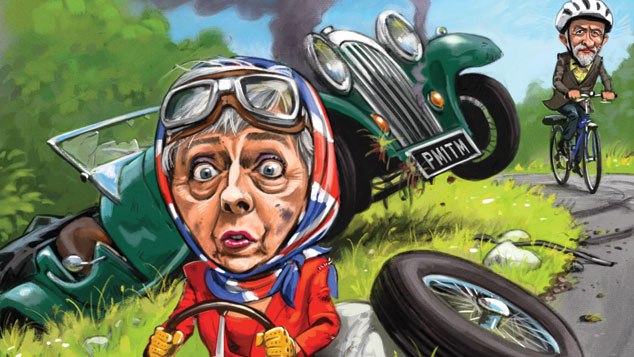
In this topsy-turvy post-election world, all political assumptions made before 8 June have been consigned to the dustbin of history. It's time for a rethink, writes John Stepek.
Last week's general election was an object lesson in the importance of contrarian thinking. A year ago, commentators warned sternly that Brexit would mean the break-up of the UK. Now the SNP has lost more than a third of its seats. A few months ago, Labour was a dead party walking. Now it's being successfully remade in Jeremy Corbyn's image.
In early April, Prime Minister Theresa May was the second coming of Margaret Thatcher. Now she's counting her political lifespan in days and weeks. A toxic mix of inflated expectations, underestimation of the opposition, and a confused and uninspiring manifesto, saw the Conservatives' hopes for a landslide crushed. Instead, they went from having a slim majority to facing a hung parliament.
MoneyWeek
Subscribe to MoneyWeek today and get your first six magazine issues absolutely FREE

Sign up to Money Morning
Don't miss the latest investment and personal finances news, market analysis, plus money-saving tips with our free twice-daily newsletter
Don't miss the latest investment and personal finances news, market analysis, plus money-saving tips with our free twice-daily newsletter
For now, no fresh election looms in the immediate future, but that depends on May making a success of a fragile alliance with the Democratic Unionist Party (DUP) and keeping her colleagues onside (see below for more). But beyond the government's day-to-day struggle to cling to power, what does the result mean for your money and for Brexit?
Brexit: no seriously, what does it mean?
Let's start with what this means for leaving the European Union. Both the Conservative and Labour parties backed Brexit. So, technically speaking, more than 80% of the country voted for pro-Brexit parties. So you can certainly argue that whatever the election was about, a re-run of the EU referendum was not the priority for most voters. The trouble is, there's still a lot of leeway on exactly what Brexit means and little agreement on what a "soft" or "hard" Brexit is.
In their manifesto, the Tories pledged to take the UK out of the single market and the customs union, and to replace freedom of movement with an alternative immigration system. May also talked of how "no deal is better than a bad deal". As Daniel Finkelstein points out in The Times, that's not because May wanted a bad deal it's because you can't have much leverage in a negotiation if you're not willing to at least pretend to walk away. But that left her saddled with the hard Brexit label. Labour, on the other hand, backed the idea of Brexit, but, as Finkelstein says, in such a broadbrush way and with so many caveats as "to allow it to vote down virtually" any deal achievable. That's one reason why there's such a lack of clarity on the party's position on the customs union, for example.
As a result of this confusion, everyone with an agenda to push has piled into the post-election policy vacuum. Top Tory remainers from David Cameron to John Major to Ken Clarke are piling on May to soften or abandon Brexit.
Meanwhile, rather than being hell-bent on "punishing" us or showing "no mercy" (as some commentators keep repeating with somewhat unseemly relish), both France and Germany have taken advantage of the UK election chaos to leave the door open to a full-scale retreat from Brexit. New French president Emmanuel Macron told May this week that "until negotiations come to an end there is always a chance to reopen the door", echoing sentiments German finance minister Wolfgang Schuble had expressed in an interview with Bloomberg.
Will Brexit be abandoned altogether? We can't see that happening. It would require either another general election, another referendum, or both and few people have the appetite for that (yet). But there are growing mutterings about the "Norway" option that is, remaining part of the European Economic Area (EEA) and thus buying time to come to a more permanent arrangement. It's the option favoured by Finkelstein, and The Daily Telegraph's Ambrose Evans-Pritchard a "liberal" leaver prefers this option, too.
While it means continuing to pay into the EU budget, it also gives the UK more flexibility in terms of reducing immigration (the "emergency brake" option), maintaining access to the single market, and it means that Britain can still "keep a safe distance from an EU that must evolve into a unitary political state if the euro is to survive", as Evans-Pritchard puts it. We would then work towards full Brexit over time, securing separate trade deals with other countries before breaking with the EU entirely, rather than being subject to an artificial two-year deadline. Even William Hague, also writing in The Daily Telegraph, acknowledges the EEA as a potential "staging post".
It sounds like an appealing short-term solution and in many ways it is. But that's a reason to be very careful, warns Julian Jessop of the Institute for Economic Affairs. After all, pleasing short-term solutions in politics have a habit of turning into long-term ones, and in the long run, Norway is not what we want to be. While we're in the EEA we still get "EU taxation, jurisdiction and regulation all without representation. We can argue about exactly what the British public did vote for, but this is clearly not it", says Jessop.
And Norway is not the only way to "avoid a cliff edge" World Trade Organisation rules "already allow for interim agreements lasting many years". So we certainly shouldn't "weaken our bargaining position by ruling out the option of simply walking away before negotiations even begin". After all, while May didn't get the landslide she wanted, "no one gained a mandate for an alternative" Brexit either.
The bigger political picture
Beyond Brexit, the picture isn't much clearer, but it's evident that a number of significant things have changed. On the one hand, one threat the break-up of the union is off the radar for now. Scotland has made it clear it has little appetite for a second referendum on independence right now. What it does have is an appetite for a more positive approach to Scottish education and health policy, which many voters feel the SNP has neglected in favour of constantly pushing the independence agenda.
It's possible the lifting of the secession risk could be good news for Scottish property prices, although there's also the risk that the SNP which now has substantial tax-raising powers will shift to the left in an effort to align itself with Scottish Labour against the resurgent Scottish Conservatives.
That's the good news. However, investors also now need to take Jeremy Corbyn and the Labour party's hard left turn very seriously. It turns out that, given the right incentives, a significant proportion of the British electorate was comfortable in voting for a man who has lauded Venezuela's economic model, and is keen on renationalisation and significantly higher taxes. Some of you may agree with the latter policies to an extent, and you're entitled to your view. But the risk is that this would be the thin end of a very large interventionist wedge.
In any case, Old Labour has triumphed over New Labour, and that's already having an impact on the political discourse. As Hague suggests, this upheaval could give rise to a more collegiate form of politics in the UK with politicians from all sides engaging in reasoned debate about the issues that really matter to people, such as housing and education. The reality, we fear, is that an emboldened Corbyn will press home every advantage he gets until the prospect of another general election is all but unavoidable.
Rising debt and inflation
Beyond Brexit, what does the current political upheaval mean for the state of the wider economy? Britain is still spending more every year than it generates in tax revenue (ie, we're running a deficit). And even before the election, neither Conservatives nor Labour planned to balance the books during the next parliament, or in fact at any point before the mid-2020s. Yet now, according to The Times, May has told her bruised colleagues that "austerity is over".
The Conservatives have decided that one lesson from their disastrous campaign is that there are no votes in fiscal prudence, and plenty in promising voters whatever they want to hear. Reports The Times: "Senior Tories said that cuts to school budgets must now be scrapped. She must also find billions for social care without raiding pensioner benefits". Ex-chancellor George Osborne was left spluttering indignantly from the sidelines in his new job as editor at London's Evening Standard, and it's possible that more fiscally careful MPs such as his successor Philip Hammond might try to resist ramping up the deficit. But higher government spending seems almost inevitable.
The problem is that, as Marcus Ashworth puts it on Bloomberg Gadfly, "boosted fiscal spending may be all the rage, but it has to be funded somehow". UK debt levels are already high (at around 90% of GDP), yet the market remains unconcerned. The yield on ten-year gilts (what it costs the UK government to borrow money for ten years) is still hovering around 1%. Meanwhile, the weak pound has helped to drive up inflation sharply this year. Last month, consumer price inflation came in at 2.9%. That's well above the Bank of England's 2% target.
It means that anyone buying a ten-year gilt today is locking in a real-terms (after-inflation) loss of nearly 2% a year and that'll only get worse as inflation continues to rise. Meanwhile, looser fiscal policy is inflationary, too, so prices could rise even further. Normally, that would mean higher interest rates, but the Bank has made it clear that, for now at least, it would rather "look through" currency-driven inflation rather than risk raising rates too soon.
Now, none of this is necessarily bad news. Financial repression is the name of the game at the moment. High inflation plus low interest rates is great news for a government that wants to inflate away its debt that's why central banks have been trying to drive up inflation since 2009. And a big concern just now is that inflation so far is not stretching to wages real earnings are feeling the squeeze, which is bad news for consumer spending and, in turn, for the UK economy. RPIX (the old Bank of England inflation target measure and the one that, a decade or so ago, everyone would have kept in mind when asking for a pay rise) is now running at a quite worrying 3.9%. If some of that extra government spending trickles through to wages, that would be a good thing.
However, the question is how long we can get away with it? As Ashworth puts it, "bigger deficits and higher inflation" combined with a becalmed Bank of England rate, don't add up to "much of an appetising feast for potential gilt investors". For now, investors are happy to hold gilts (and most other developed world government bonds) almost regardless of debt levels, while hopes of a soft Brexit are underpinning sterling. But Britain is in a precarious position, for which it's worth being prepared (more on that below).
Can Theresa May's government survive?
The prime minister is forming a minority government, with the support of the Democratic Unionist Party (DUP). The DUP is, like every other Northern Irish party, more socially conservative than the Tories, but also more relaxed about fiscal matters. They also won't want to run the risk of ending up with a government led by Jeremy Corbyn. So the odds of a deal surviving look reasonably strong (see page 18 for more). May's other best hope of clinging to power is that no one else in the party will want to take charge while the Brexit process is under way.
However, as John Ashmore puts it on PoliticsHome.com, governing with such a slim margin of error will be very tricky indeed. "Whatever the expressions of public support, May will shortly run up against the remorseless arithmetic of a wafer-thin, DUP-backed Commons majority." As Samuel Tombs of Pantheon Macroeconomics notes, the simple process of attrition will make it hard for a minority government to cling to power: "In a typical year, four by-elections are held because MPs resign or die the chances of the government lasting its full five-year term are slim".
Regular MoneyWeek contributor Paul Hodges, of International eChem, worries that "if Labour can win more seats from the SNP next time, then they are on the way back into power, which could happen sooner rather than later if the experience of 1974's minority government holds. Once markets realise what's happening, they probably won't be too amused by the size of our debt and the fact that we'll be spending more. The pound could fall sharply, potentially forcing the Bank of England to drive interest rates up equally sharply which would clearly be very bad news for the housing market". It's a scenario the Tories will be keen to avoid another incentive for them to back May for the moment.
What it means for your money
The most immediately obvious impact of the indecisive election result has been to send the pound lower. Sterling was hovering near the $1.30 mark before the exit poll was declared. It has since dropped back to around the $1.27 mark. That's a lot less brutal than the fall could have been partly because sterling was already relatively cheap following last year's EU referendum result, and partly because markets are betting that a weakened UK government will end up negotiating a softer Brexit.
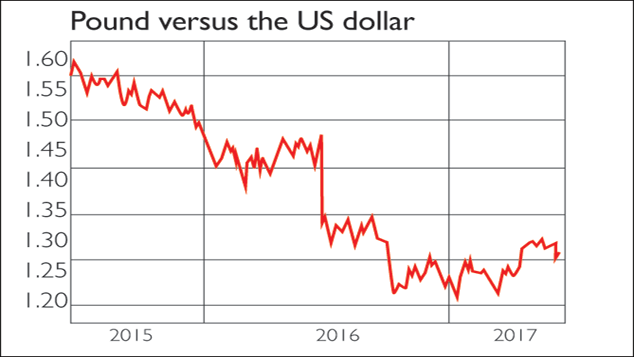
The chances are that the pound will continue to hover around these sorts of levels and be buffeted about as much by events overseas as by domestic ones. However, there are a few wild cards out there the prospect of another general election being the most obvious and any nasty surprises are likely to show up first in the exchange rate. So make sure that you have exposure to non-sterling assets in your portfolio.
We've always been keen on international diversification and we warned about this at the time of the Brexit vote, too, so hopefully your portfolio should already be reasonably well-positioned. If not, there are a number of options open. You could consider investing via London-listed stocks that make most of their money overseas (the FTSE 100 is chock full of them), but if you're looking for proper diversification we'd suggest investing in foreign-listed stocks as well.
We still feel the US in general is too expensive, and Europe is starting to catch up. But Japan remains very appealing, and remarkably of all the developed economies it is probably the most politically stable right now. The Baillie Gifford Japan Trust (LSE: BGFD) is one investment trust option with a great track record. Also, keep hold of your gold. It's one of the best forms of financial insurance and that's something we could all do with right now.
Get the latest financial news, insights and expert analysis from our award-winning MoneyWeek team, to help you understand what really matters when it comes to your finances.

-
 How a ‘great view’ from your home can boost its value by 35%
How a ‘great view’ from your home can boost its value by 35%A house that comes with a picturesque backdrop could add tens of thousands of pounds to its asking price – but how does each region compare?
-
 What is a care fees annuity and how much does it cost?
What is a care fees annuity and how much does it cost?How we will be cared for in our later years – and how much we are willing to pay for it – are conversations best had as early as possible. One option to cover the cost is a care fees annuity. We look at the pros and cons.
-
 Governments will sink in a world drowning in debt
Governments will sink in a world drowning in debtCover Story Rising interest rates and soaring inflation will leave many governments with unsustainable debts. Get set for a wave of sovereign defaults, says Jonathan Compton.
-
 Why Australia’s luck is set to run out
Why Australia’s luck is set to run outCover Story A low-quality election campaign in Australia has produced a government with no clear strategy. That’s bad news in an increasingly difficult geopolitical environment, says Philip Pilkington
-
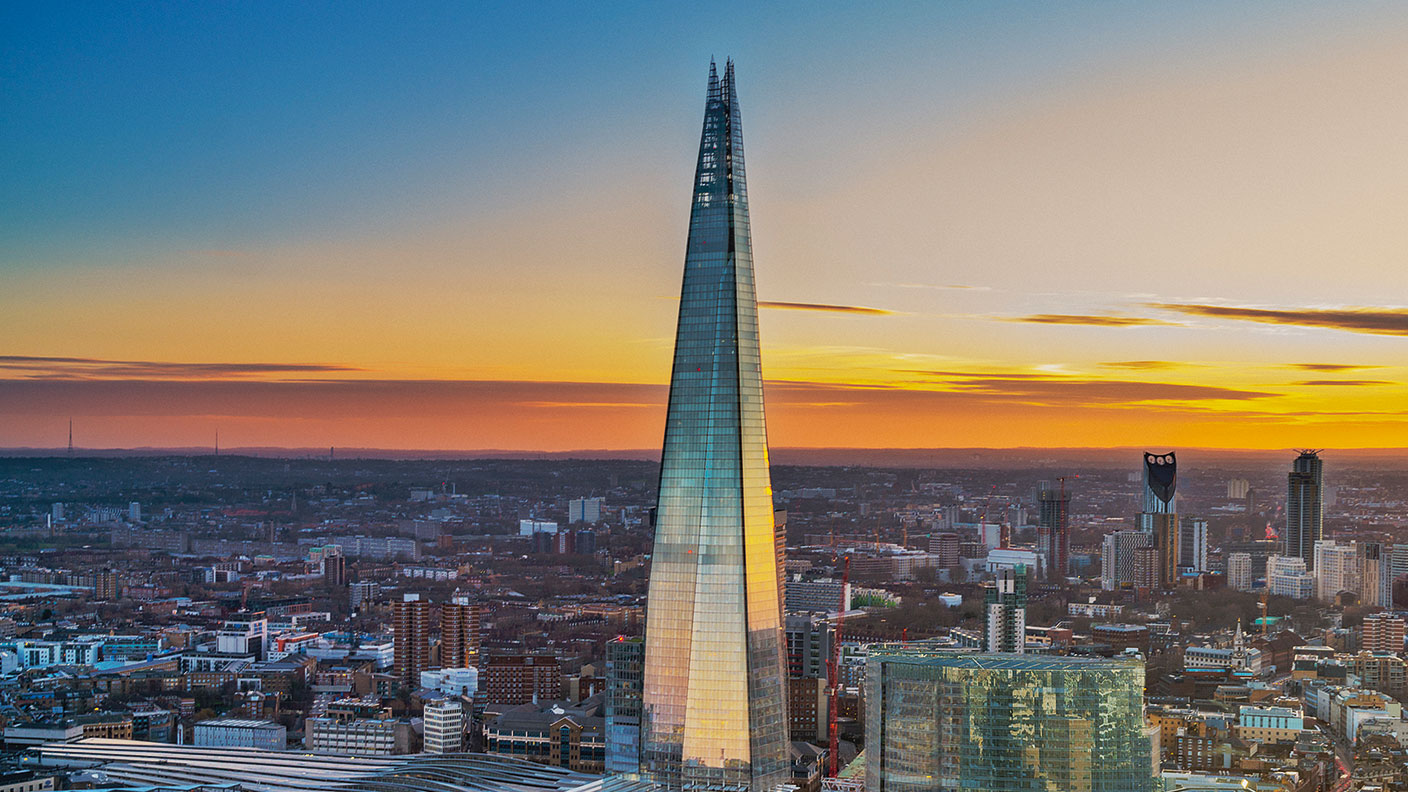 Why new technology is the future of the construction industry
Why new technology is the future of the construction industryCover Story The construction industry faces many challenges. New technologies from augmented reality and digitisation to exoskeletons and robotics can help solve them. Matthew Partridge reports.
-
 UBI which was once unthinkable is being rolled out around the world. What's going on?
UBI which was once unthinkable is being rolled out around the world. What's going on?Cover Story Universal basic income, the idea that everyone should be paid a liveable income by the state, no strings attached, was once for the birds. Now it seems it’s on the brink of being rolled out, says Stuart Watkins.
-
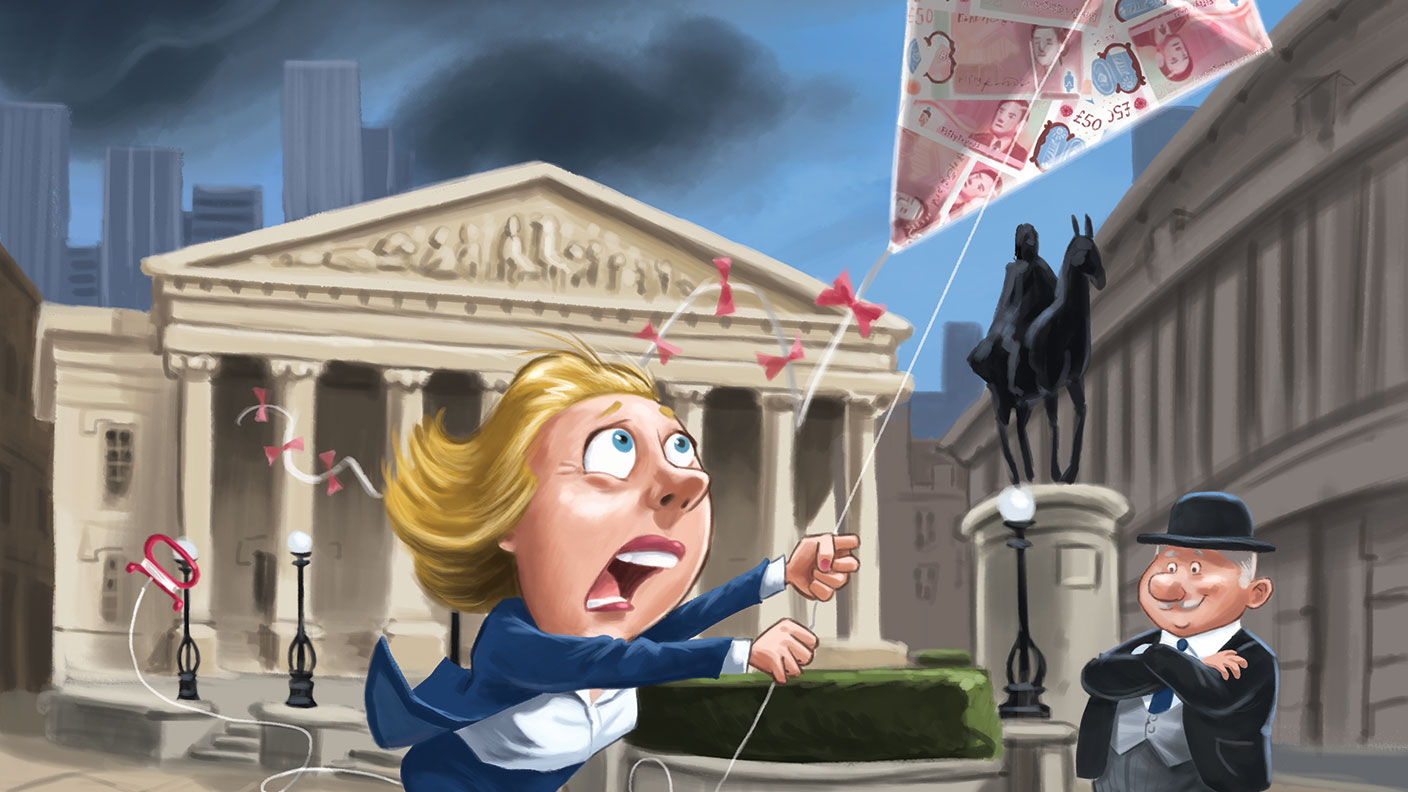 Inflation is here to stay: it’s time to protect your portfolio
Inflation is here to stay: it’s time to protect your portfolioCover Story Unlike in 2008, widespread money printing and government spending are pushing up prices. Central banks can’t raise interest rates because the world can’t afford it, says John Stepek. Here’s what happens next
-
 Will Biden’s stimulus package fuel global inflation – and how can you protect your wealth?
Will Biden’s stimulus package fuel global inflation – and how can you protect your wealth?Cover Story Joe Biden’s latest stimulus package threatens to fuel inflation around the globe. What should investors do?
-
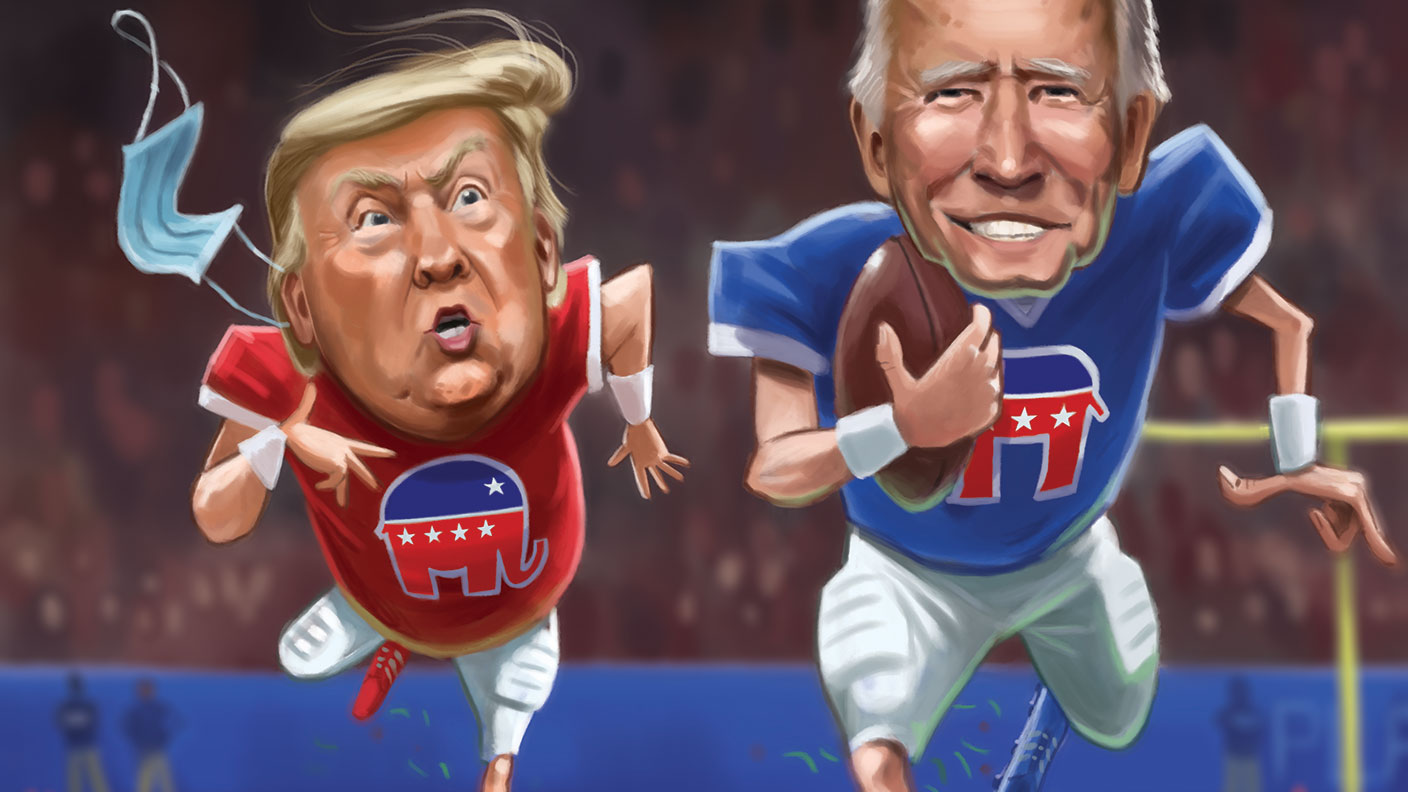 What the race for the White House means for your money
What the race for the White House means for your moneyCover Story American voters are about to decide whether Donald Trump or Joe Biden will take the oath of office on 20 January. Matthew Partridge explains how various election scenarios could affect your portfolio.
-
 What’s worse: monopoly power or government intervention?
What’s worse: monopoly power or government intervention?Cover Story Politicians of all stripes increasingly agree with Karl Marx on one point – that monopolies are an inevitable consequence of free-market capitalism, and must be broken up. Are they right? Stuart Watkins isn’t so sure.